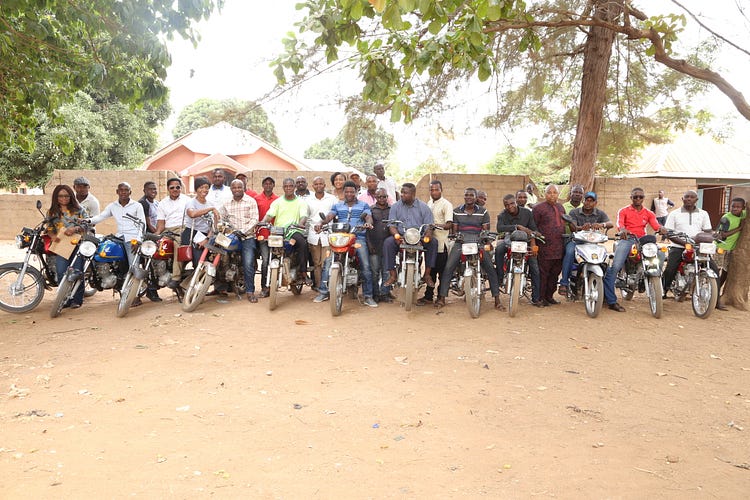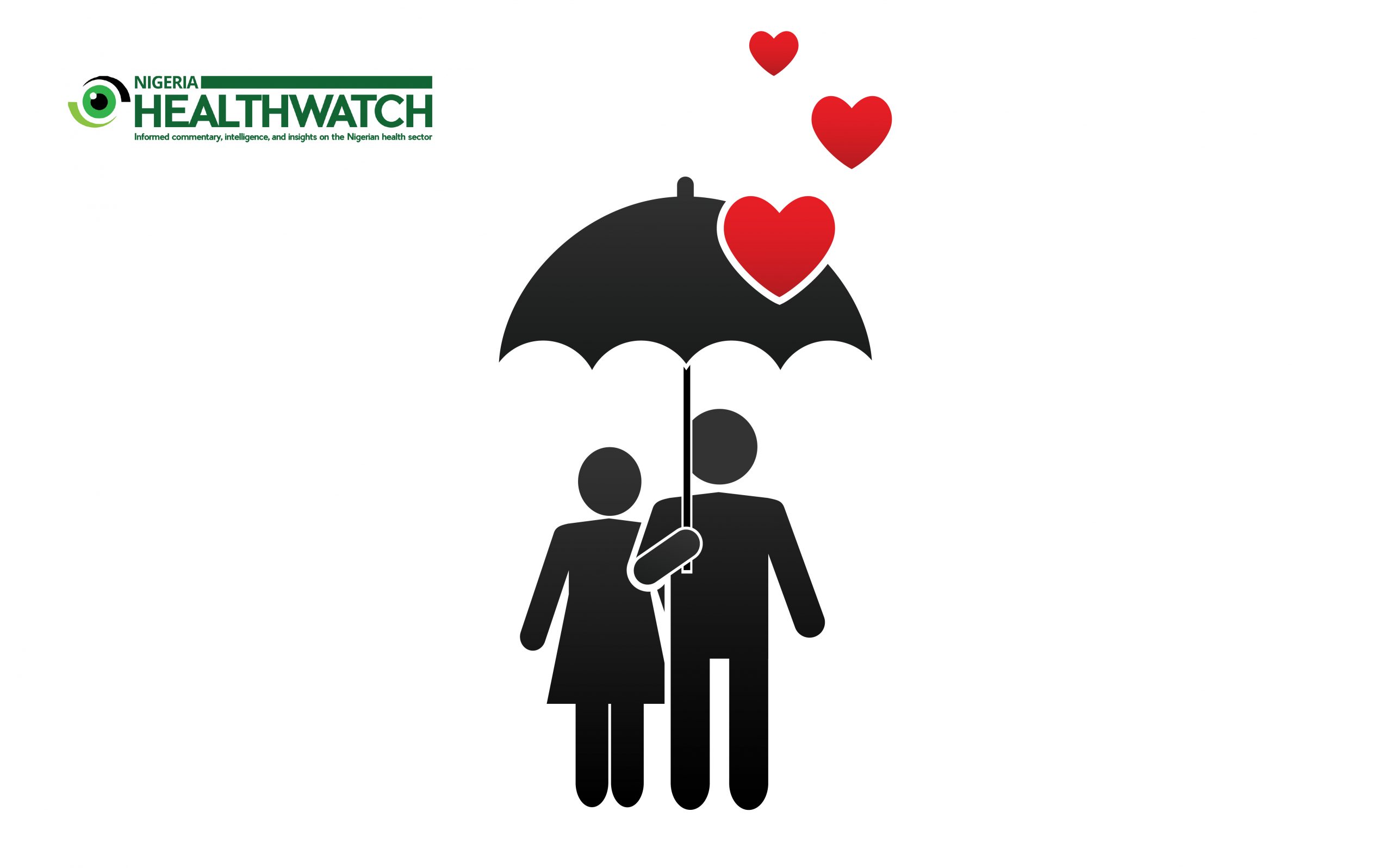Editor’s Note: Ahead of Valentine’s Day on February 14, Nigeria Health Watch Social Media Analyst Michael Atima weaves a tale of romance that takes a nose dive when the unexpected happens, and reminds us all that love is sweet, but sweeter when both partners have access to the best gift money can buy — quality, affordable healthcare.
Treasure the love you receive above all. It will survive long after your good health has vanished — Og Mandino
Deji owns a mechanic workshop in Abuja where he works hard to earn a living and provide jobs for six other young boys. Onyinye, a make-up artist, brought in her car for servicing. She met Deji and a modern-day Romeo and Juliet romance was born in late December, 2018.
They had gone out on several dates afterwards, but today was special as it was their fifth date. Deji chose Valentine’s Day, the 14th of February. The mood is right, the ambience is perfect, and the food tastes like cuisine from mama’s pot. Marvin Gaye’s sultry voice mingles with the light chatter, and the young couple giggles when he croons his famous line, “And when I get that feeling…”
Onyinye suddenly starts to feel uncomfortable and groans while holding her stomach. She can barely speak, and instead screams in pain. Deji quickly requests for a taxi and they head to the closest hospital. After a few diagnostic tests, Onyinye is told she has to have surgery to remove her appendix. Already worried about having to go under the knife, she is doubly concerned because she cannot afford to pay for the procedure.
Health for the “Missing Middle”
Access to affordable healthcare continues to be a challenge for most Nigerians as a result of poverty and a significant reliance on out-of-pocket payments. Health Insurance coverage throughout the country is low. Nigeria has a high and growing number of low and middle income earners, majority of who work in the informal sector. The number of people in the informal sector is hugely disproportionate to the number of people in the formal sector. Yet the informal sector has little or no access to basic healthcare.
The NHIS was launched in 2005, but according to the former National Health Insurance Scheme (NHIS) boss, Prof. Usman Yusuf in 2017, only one percent of the nation’s population has been covered under the scheme since its inception. A recent survey by NOIPolls in 2019 shows that the scheme covers less than 10 percent of Nigerians.
Many Nigerians have similar experiences to Onyinye’s. There are instances when people have sold jewellery, land, or cars just because they couldn’t afford to pay for healthcare.

In Nigeria’s quest to attain Universal Health Coverage (UHC), a “missing middle” has emerged because of the high number of people working in the informal sector. Market women and men, roadside vendors, barbers, tailors, plumbers, laborers, truck pushers, street food vendors, shop attendants, taxi drivers and much more are all part of that sector. Coverage is often lacking for informal sector workers and their families because of the relative difficulty in identifying and enrolling them and in financing their coverage in an efficient and equitable way.
The definition of the informal sector adopted by the International Labour Office (ILO) in 2007 refers to “all economic activities that are — in law or practice — not covered or insufficiently covered by formal arrangements”. The broadened term takes account of the considerable diversity of workers and economic units, in different sectors of the economy and across rural and urban contexts that are particularly vulnerable and insecure; that experience severe decent work deficits and often remain trapped in poverty and low productivity. Lack of access to funds to pay for healthcare may be even more restrictive than the lack of adequate human resources for health care. This makes it important for the informal sector to be covered by health insurance.
Are State-led community schemes an answer?
While many States are developing their health insurance schemes, successfully covering the informal sector remains a challenge. Community-Based Health Insurance Scheme (CBHIS) is an emerging scheme designed with the exclusive purpose of improving access to quality health services for low-income rural families who are excluded from the National Health Insurance Scheme.

Some limitations of the CBHIS is sustained funding from donor support which could either be government or third-party support. While they face these challenges, some states in Nigeria are working with these CBHIS to provide the third-party support and the CBHIS are covering the informal sector which the State’s health insurance will not be able to reach. A case study is Benue State who offers discounts when community members register under the state scheme through the CBHIS. The State scheme encourages community members in the informal to join associations (which they can hold accountable) who would then register as community-based health insurance schemes. The premium for enrollees under the CBHIS is N500 per month as opposed to N1000 which an individual will pay if not under a community scheme.
Nigeria must protect the informal sector, which forms a large part of its estimated 200 million citizens. The National Health Act that was signed into law in 2014 states that every Nigerian is entitled to basic healthcare but not much has been done to ensure universal access to healthcare for every Nigerian.
Onyinye did not plan to fall ill, but she did. Most of us plan for the things we can control. We are quick to plan for weddings, birthdays, school fees, but do not seem to plan for healthcare. Gift your loved ones a health insurance plan wrapped in red ribbon for Valentine this year. You don’t know how many lives you could save.
Happy Valentine’s Day from your Nigeria Health Watch Team. Do you know other innovative health gifts that are perfect for that special someone on Valentine’s Day? Share with us on our social media platforms using the hashtag #Health4AllNaija.


